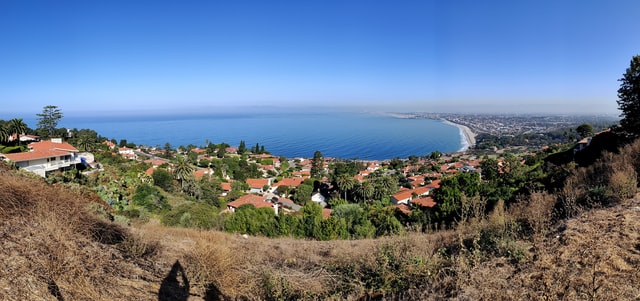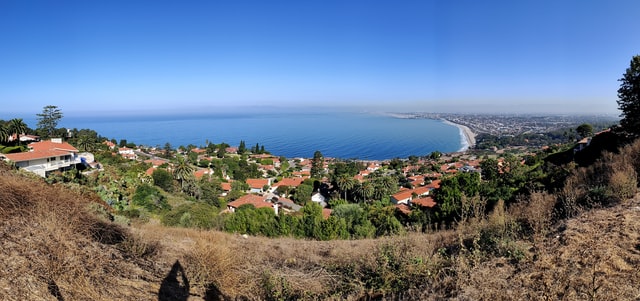[ad_1]

The world’s ocean shipping lines, primarily concentrated into just three shipping alliances, generated about $190 billion in profits last year, mainly due to dramatically higher prices. But many others involved in global trade — businesses as well as workers, consumers, and communities — haven’t fared so well during the pandemic. Shipping costs have helped fuel inflation, congestion delays have severely damaged some businesses, workers have suffered high rates of COVID-19, and continued pollution exacerbated COVID-19’s health impacts.
A new report from the Economic Roundtable, “Someone Else’s Ocean,” looks beyond the extreme jolt of the pandemic, to the long-term neglect of the broad public interest that’s facilitated those disparities, specifically focused on the San Pedro Bay ports. “The ports are public property, and legally their obligation is to provide benefits for residents of California,” the report’s co-author Daniel Flaming told Random Lengths News. “And our central findings in the report are that the ports have become instruments of foreign shippers and foreign manufacturers who don’t have a stake in the port communities or the American labor force. ”Random Lengths News interviewed Flaming at length (the full interview is available online). He discussed issues like the imbalance of imports and exports, the importance of longshore jobs in the local economy, and the ripple effect costs of automation. If continued, and 50% of longshore work was eliminated, “that would be a loss of about $402 million a year in wages, and then it would destroy another roughly 2,500 non-port jobs,” he warned. “And if 75% of jobs were eliminated, that would be about 11 million hours of dockwork that would disappear, and about $628 million in wages. And that will eliminate the over 3,800 jobs that are supported by dockworkers’ household spending. So it can be very destructive for port communities.”
Most importantly, Flaming provided a summary of the report’s recommendations:
One of the things they could do would be to enact an impact fee. For any kind of new development there’s an impact fee — to pay for parks, pay for schools, pay for roads, pay for housing. And so there should be an impact fee on any automation for the cost of unemployed workers. And as we were just saying, we recommend the state should enact a tax on automated terminals meant to generate public revenue comparable to revenue from the jobs it destroyed. And we recommend that the ports eliminate all of the discounts for exporting empty containers, and have a surcharge to offset the under-utilization of California’s export capacity, and that the ports should also provide discounts for containers that export California’s goods. And that the jobs that the port provides, including the truck drivers who have really difficult jobs, should be paid a livable wage, the prevailing wage.
We also recommended that the union, the ILWU, should become more active in reviewing and providing public comment on terminal leases and we also recommend that the port should not pursue any more automation plans unless it’s demonstrated that there will be a net benefit for workers. And finally, we recommend that the port become proactive in reaching out to California export industries, listening to how they can be helpful in supporting them in exporting their products.
In conclusion, Random Lengths highlighted one more problem: the ports’ lack of any built-in institutionalized relationships with countervailing forces to offset the day-to-day influence of shippers. The Port Community Advisory Committee did provide a rudimentary model, but what’s needed, we suggested is something “with a lot broader range of shareholders, representing not just the local community but the whole region — LA County as a whole as well as the Inland Empire — and to some extent the whole state.”
“I think that’s a superb recommendation,” Flaming said. “I think you’re absolutely spot on.”
[ad_2]
Source link








